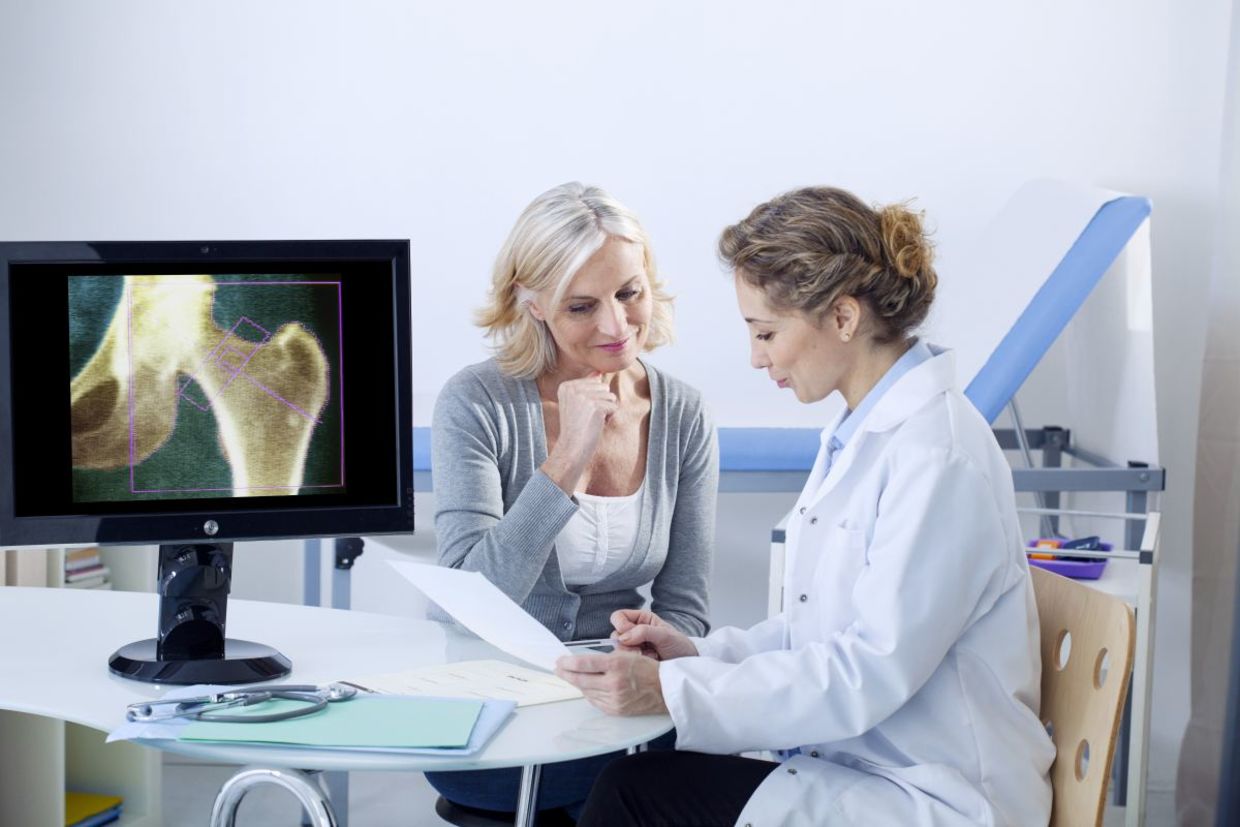
(Image Point Fr / Shutterstock.com)
Bone health is something most young people never think about unless they have had a fracture. When you are young and active, it's just not on your radar to prioritize bone health.
After all, weak bones are often thought of as only a problem when people age. But that really is not the case according to mindbodygreen.
People reach their peak bone mass at age 30, after that there isn’t much bone growth. That’s why it is important to take care of your bones at any stage of life.
“I think we always hear growing up that calcium is good for bones and vitamin D is good for us,” Clare Masternak, PA-C, an orthopedic surgery physician assistant and the bone health and fragility fracture program coordinator at Michigan Medicine told mindbodygreen. "But that's kind of where the discussion stops until we're older and maybe we have had a fracture.”
As you age, your bones become less dense and more likely to break, especially for post-menopausal women. That’s when estrogen, the hormone that regulates bone metabolism, goes down and this is the leading cause of osteoporosis, a condition that makes bones very brittle.
Other health conditions like a vitamin D deficiency, diabetes, kidney disease, and liver disease can also affect your bone health. But it’s never too late to change habits and to take better care of your bones. Here are three important tips on how to improve the health of your bones.
Get Enough Calcium and Vitamin D
Calcium and vitamin D play an essential role in bone health. Your bones are mostly made of calcium, and this important mineral also plays a role in muscle function, blood clotting, and blood vessel contraction. If you do not get enough calcium from the food you eat, or by taking supplements, your body will pull it from your bones.
You need 1,000 to 1,200 milligrams of calcium daily and you can get most of it from eating dairy foods, fortified beverages like orange juice, and fish.
Vitamin D is essential because it promotes the absorption of calcium in your gut. You can get vitamin D from spending time outdoors during the day and from fortified milk and cereals. It is important to get a vitamin D screening no matter how young or old you are.
Do Weight Bearing Exercises
Physical activity is also important for your bone health, especially as you age, according to Masternak. Exercises like weightlifting, strength training, hiking, running , and jumping help to stimulate bone growth. You should perform these resistance-type exercises for 30-40 minutes every day to reap the maximum benefits to your bones.
A 2018 study, published in BioMed Research International, found that weight-bearing exercises can limit the loss of bone mass in people with osteoporosis and that strength and resistance exercises can actually increase bone density.
Eat More Veggies
You can eat your way to better bones by eating more veggies, reports MedicalNewsToday. That’s because vegetables contain especially important vitamins, minerals, and fiber. Besides calcium and vitamin D, other vitamins including C and K are important for bone health and the prevention of osteoporosis.
Vegetables that are high in vitamin C include peppers, broccoli, Brussel sprouts, and potatoes. Consume greens like spinach and cabbage to up your intake of vitamin K.
YOU MIGHT ALSO LIKE
Explore the Best Superfoods for Seniors
New Study Shows How Vibrations Can Help Heal Bones
Discover the Future of Healing with Innovative Bone Replacement Technology







